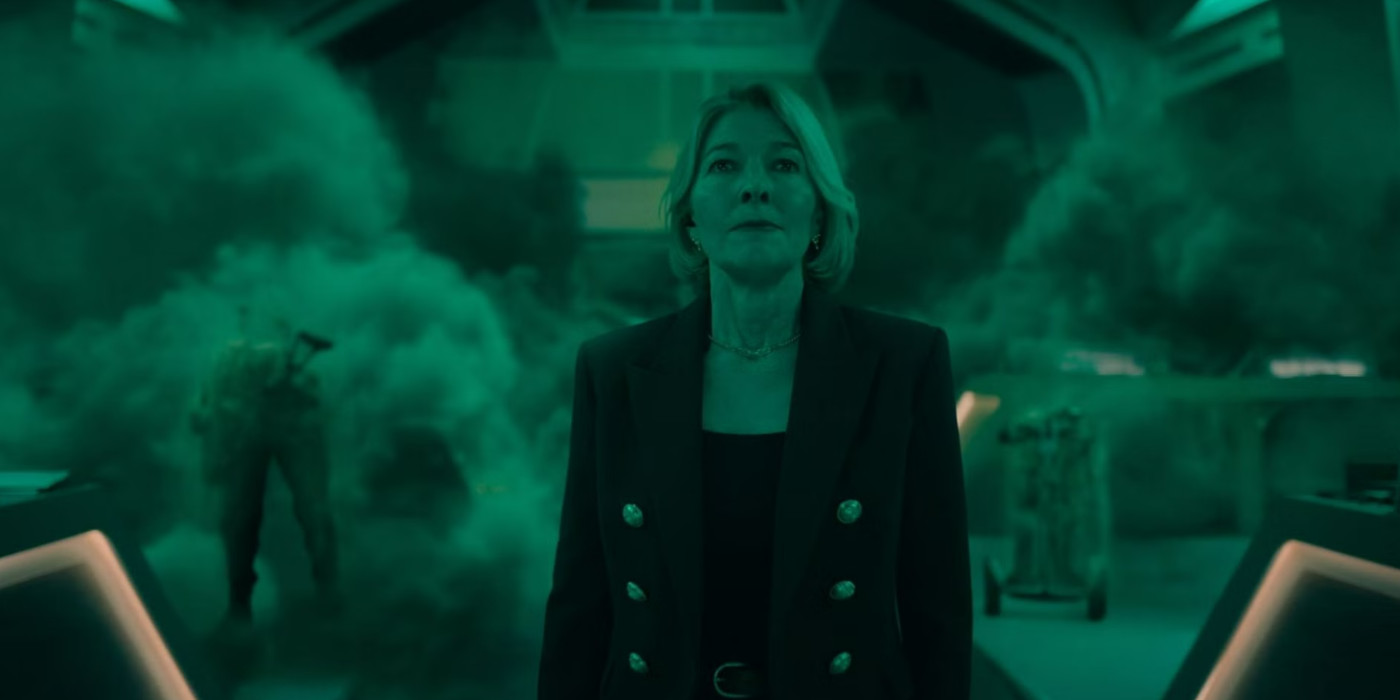‘Doctor Who’ Needs Consequences, Actually

With “Empire of Death” the new Doctor Who season concludes with the death of most life in the universe. It’s fixed in under an hour. Come on.
The new season of Doctor Who is, in many ways, a refreshing new direction for the over-60-year-old series. Ncuti Gatwa and Millie Gibson inject a youthful exuberance as the show tackles subjects like refugees, fascism, and racism. There’s an exciting eschewing of straightforward narrative as well as musicals and cosplay. The show is fun!
However, can we have a little tough talk? After 8 episodes building to the reveal of Ruby Sunday’s true parentage and the return of classic Doctor Who baddie Sutekh, the finale was met with frustration. There’s good stuff in there. The performances remain solid. It’s wonderful seeing the return of Bonnie Langford as Mel Bush and hearing Gabriel Woolf voice Sutekh again was very cool.
Do you remember the series three finale “The Last of the Timelords”? It’s the episode where the Master wipes out one tenth the human population but then the Doctor becomes a god and undoes all of it with little to no consequence? Well, this latest finale “Empire of Death” takes that further by ending the entire universe only to completely undo it in about half an hour.
Why is this frustrating storytelling especially now? Let’s talk about the lack of consequences on Ruby Road and beyond.
Doctor Who and Plastics
If Doctor Who has a golden age, it is the 1970s. It’s the era of Jon Pertwee, Tom Baker, U.N.I.T., Sarah Jane Smith, the Brigadier, and nearly countless other iconic aspects of the series. It is the time when Sutekh first appears in one of the show’s most beloved episodes “Pyramids of Mars”. And since a lot of this era is set on Earth, we see Earth related issues. One of them is the environment.
“Inferno” deals with science going too far and ending the world. “The Green Death” deals with the consequences of chemical waste. And then there’s “Spearhead from Space”—an episode where an alien intelligence uses plastic shop window dummies to (almost) take over the world.
The Autons (those alien mannequins) represent a cultural anxiety. Plastics existed long before the 1970s, but the ’60s and ’70s do represent an era where we begin to use plastics in more disposable ways. And there’s a natural question there: is this safe? And if you live in most major cities today, you know that citizens do recycle their plastics. The anxiety over plastics exists for good reason. And so people do their part.
While Sutekh is not a stand-in for environmental issues, he is a character from that pro-environment era. Sutekh dies in “Pyramids of Mars”—or so we think. In actuality, he is with the TARDIS for decades after. In a way he represents a problem thought solved that is actually more dangerous than ever.
So about recycling plastics…
You Know How Giant Corporations Lie?
In the early 1990s there was this big push towards recycling—including plastics. Because, yes, that’s a big part of keeping Earth habitable. The push had bipartisan support. In the state of New Jersey for example, Republican Governor Christie Todd Whitman had a whole “reduce, reuse, recycle” program she pushed for not only in legislation but also taught in schools. And it was very successful! Even companies like Exxon and Dupont got in on it!
Related: the Center for Climate Integrity released a report in February 2024 with the title “The Fraud of Plastic Recycling”. In the report there’s quotes from people in those companies. “We are committed to the activities, but not committed to the results,” says one Exxon executive for example. Someone from Dupont says they know full well they can’t meet recycling goals. These are comments from the ’90s. Around 6% of plastics are actually recycled.
In other words, when Doctor Who writers came up with a story about the dangers of plastics, they were right! And just like Sutekh, this problem of too much unrecyclable plastics has been with us this whole time—and now it’s actually much bigger and more dangerous.
When Sutekh wipes out U.N.I.T. at the start of “Empire of Death” (before killing the universe, too), that should be shocking. But it isn’t because we know it won’t keep. And it doesn’t! That’s especially frustrating because our real world problems cannot be solved in a Doctor Who minute.
Doctor Who and the Constant Companion
Wherever the Doctor lands, people die. This is something Russell T Davies makes note of way back in the 2005 pilot episode “Rose”. With “Empire of Death” we learn that Sutekh is always there for those deaths. And yet, after all that time, he kills no one — not permanently, anyway. Even Susan Triad, a women Sutekh creates across time, turns back to normal and lives.
Since Russell’s return to Doctor Who, he’s made it clear he wants to handle the issues of the day. He takes away Davros’ disability because “evil disabled people” is a bigoted trope. He gives Rose Noble, a transgender character, a core role in saving the Earth. Doctor Who comes for racism, homophobia, and everything in between in the 2024 season.
But Sutekh, who can stand for any number of real world issues we’ve failed to deal with, doesn’t kill a soul. In “Dot and Bubble” all the racists in the story either die or will die because of man-eating slugs. But in the real world, death doesn’t differentiate. You don’t get to live because you are good.
Doctor Who doesn’t have to be as dark as real life, but it has to feel true. The things we’ve left unattended, be they plastics or any of a myriad of other problems, will result in an unimaginable death toll. It’s inevitable. And we’re very aware of it. Maybe more now than ever. Sutekh is an unattended evil. Taking his fangs away and defeating him inside of an hour misses the moment we’re in.
Doctor Who needs consequences.

